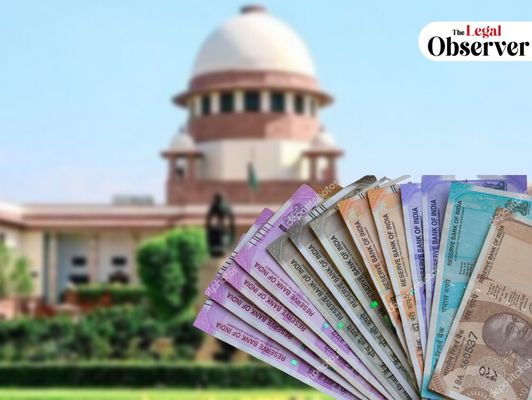PM Narendra Modi administration’s 2016 demonetisation campaign will be scrutinised, the Supreme Court stated on Wednesday, October 12. 58 numbers of petitions opposing the action were being heard by a five-judge Constitution bench comprising of Justice S. Abdul Nazeer, BR Gavai, AS. Bopanna, V. Ramasubramanian, and BV. Nagarathna.
The bench stated that although it is aware of the “Lakshman Rekha” about judicial review of government policy choices, it will need to analyze the 2016 demonetisation judgment in order to determine whether the matter has devolved into merely an “academic” exercise.
According to attorney general R. Venkataramani, the issue will remain until the 1978 High Denomination Bank Notes (Demonetisation) Act is challenged in an appropriate context. The SC panel declared that it must investigate the situation because neither party was in agreement before it could say whether the exercise was academic or futile.
“The Lakshman Rekha is always known, but the method by which it was accomplished need to be examined.” In order to make a determination, we must hear from the attorney,” said the bench while hearing a number of petitions contesting the demonetisation initiative.
Senior attorney P Chidambaram, who is representing one of the parties said, “The issue has not become academic and needs to be determined by the highest court”
Replying to P Chidambaram, Attorney General R. Venkataramani said without a solid challenge to the Act on Demonetisation, the matter will largely remain academic.
The High Denomination Bank Notes (Demonetization) Act was passed in 1978 to make it possible in the public interest for certain high denomination bank notes to be demonetised in order to stop the illegal movement of money that is bad for the economy and is made possible by such currency notes.
The apex court said that since both sides have a disagreement, it must be examined before it can be determined whether the exercise is academic or has turned fruitless.
“Whether it is academic, not academic, or outside the purview of judicial review, we will need to hear all sides of the argument in order to respond to that question. One component of the case’s argument is about government policy and its wisdom.” said the bench.
Opening the argument, Solicitor General, Tushar Mehta, stated that the court’s time should not be “wasted” on academic matters. Senior attorney Shyam Divan, objected to Mehta’s argument and stated that “the prior bench had stated that these issues needed to be brought before a constitution bench. The issue has not become academic and needs to be determined by the highest court.
He further added, “According to Senior Attorney P Chidambaram, who is representing one of the parties. A separate act of Parliament is needed for this form of demonetisation.”
The matter will now be heard on November 9, 2022. December 16, 2016, a bench led by the outgoing Chief Justice TS Thakur submitted the issue of the decision’s legitimacy as well as other pertinent issues to a bigger bench of five judges for a conclusive ruling.
In the reference order, it posed a number of questions for the five-judge bench to decide, including whether the notification dated November 8, 2016 violates the Reserve Bank of India Act, 1934, and whether it does so in violation of Article 300 (A) of the Constitution.
The three-judge bench has already stated that whether the 2016 notification violates Articles 14 and 19 of the Constitution, presuming it was lawfully made under the Reserve Bank of India Act, 1934. No one may be deprived of their property without the authority of the law, according to Article 300(A).
The bench had referred to one of the concerns as “whether the limit on withdrawal of cash from the money placed in bank accounts has no basis in law and breaches Articles 14, 19, and 21.”
The right to equality before the law is guaranteed by Article 14, while freedom of speech and expression is protected by Article 19, and the protection of life and personal freedom is guaranteed by Article 21.
It has stated whether the application of the contested notification(s) is procedurally and/or substantively unreasonable and, as a result, violates Articles 14 and 19, as well as the consequences of that violation.
With regard to the “general public importance” and the “far-reaching implications” that the answers to the various other questions the top court had posed, the court stated, “we consider it proper to direct that the matters be placed before the larger bench of five judges for an authoritative pronouncement.”







